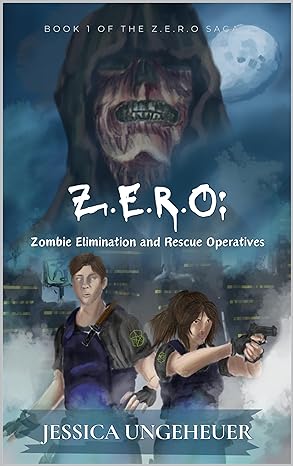Monsters Can Show the Darkest Shadows of Humanity - Jessica Ungeheuer
31 Oct 2024There are so many literary works out there that subvert the reader, and shows the darker side of humanity. The ones that do it well, are when you don't see it coming. A perfect example is Shirley Jackson's The Lottery. A small town gathering to find the results of a lottery, quickly takes a dark turn when the reader learns what winning truly means. The excited crowd of onlookers full of men, women, and children of all ages, quickly turn on the lottery winner, rocks in their hands, despite the winner's pleas… A blank mob mentality takes over the crowd and a brutal act is committed, leaving the reader in shock. This twist in the end of the story is poignant, and the story as a whole subverts the reader to the darker machinations of the town's society. A genre of horror that I feel subverts the reader just as well is the monster genre.
Monster fiction is probably one of my favorite genres of horror. Created by the original queen of horror, Mary Shelley, with her classic literary novel Frankenstein, monster stories reflect more than just terrifying creatures, but also the darker traits of humanity and societies in the face of these villains. A type of self reflection exists within these tales.
One of the best monster subgenres that explores this concept are zombie stories. Yes the living dead can be terrifying, but in most of their tales they are a symptom of the issues facing survivors of an undead holocaust. One of my favorite anthologies is Zombies: Encounters With The Hungry Dead edited by New York Times bestselling author John Skipp. In his introduction, Skipp hits exactly what I love about the genre, stating zombies ”...are not pretty. They unearth deep reservoirs of darkness within us, and the things they have to tell us are often raw and excruciating...And that, I think, is why zombies have become such an important metaphor for our time: effortlessly careening from comedy to tragedy to full-tilt atrocity, until even our global economy sports the z-word writ large. Because they put our humanity into such stark relief. They are us, stripped of everything that makes life worth living.”
What makes zombie fiction the most unique and entertaining to me is the effects of the undead on the people and societies around them, and not the horror of the undead monsters themselves. There is always more to these stories besides the stalking ghouls and unabashed gore. In the most common undead tales, you see the complete de-construction of modern societies. Rules and laws are thrown out the window, as well as the goodwill of helping your fellow man. The term “community” becomes twisted to benefit a small group versus the society as a whole. In most of these stories we see people, “only surviving”, to give justification for their horrible and selfish actions: Leaving people behind because they are too slow or old and risk the survival of the majority, stealing from other survivors, and killing innocent people out of fear of possible “infection.” The same blank mob mentality takes over like I referenced earlier with Shirley Jackson's tale, that these actions are normal, disturbing the reader. Sometimes the humans of these tales commit worse acts than the creatures as their violence is committed with a consciousness that does not exist in the mindless undead ghouls. I'm sure anyone who has watched the popular AMC show, The Walking Dead, will immediately think of “The Governor” or Neagan.
Zombies are a symptom of the larger issue in these societies. A book series I love that has a very unique approach to this genre is the Feed Trilogy by Mira Grant. In her book series, instead of the heart of the story taking place during the “zombie apocalypse,” it takes place in the time after. Zombification is just a disease people have to deal with, like Covid is today. However, in this new, “better” society, there is a dark truth under it all that the main characters, two young reporters for a popular news blog, must find out. The author does well to show a regular normal looking society, while showing a more sinister layer beneath. For example, threats of simple blood tests when entering a home can mean entry or instant incineration. The people constantly live in a state of fear of mutating. This fear fuels actions in authoritative figures to control and bend society to their benefits.
If you are not a fan of the viral, violent, and gore-filled zombie genre, there are also undead tales with the dead resurrected through acts of mysticism. Like through rituals of magic, the most common being voodoo. An example is Stephen King's short story, The Return of Timmy Baterman, which he wrote prior to his popular novel, Pet Sematary, which I feel has similar themes and elements. In this tale a young man, barely seventeen years old, goes off to war and is killed in action. He was the only son of Mr. Baterman, who was also a widower. When Timmy's body is returned to him, the other town folk mention how they see Timmy walking around town. Though there is something wrong with him…When some of the townsfolk decide to actually confront Mr. Baterman, they find an old man, small, feeble. A ghost in a shell of a man that he once was. Instead of offering this man aid in his grief, they left him to his own devices…I found it to be truly a sad tale.
So if you were never a fan of the zombie genre before, I hope I helped build interest enough that you may try it out now, and enjoy the undead, and the stories they influence as much as I do.

If you liked what you've read, you might enjoy Z.E.R.O., novel written by Jessica Ungeheuer. You can order it using this link.
